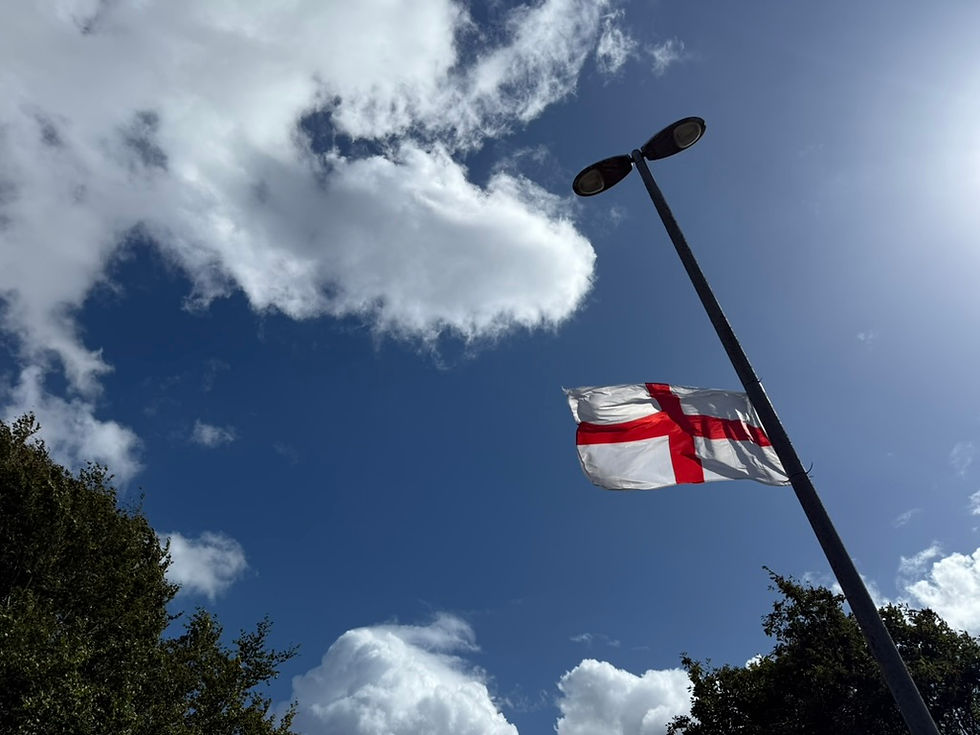Immigration, Christianity and the call of the cross
- Peter Shaw

- Aug 31, 2025
- 2 min read

Immigration has become one of the most pressing and divisive issues of our time. Across communities, people feel deep anxiety about change: shifting demographics, evolving cultures, and the sense that the world they once knew is slipping away. As someone who grew up in a historically white, working-class community, I understand those tensions. My great-grandfather worked in a wallpaper factory on a local estate; my grandmother and mother both made their homes there too. This place became my childhood world.
At one point, my estate was the most densely populated area for Polish people outside of Warsaw. Even our family dog was bilingual, trained to sit, stay and lie down in both English and Polish after too many adventures in the neighbours’ gardens. Later, in primary school, I remember clashing with a Somali refugee classmate, she stole my peanut butter sandwich and I lashed out. Looking back, I realise those childhood moments reflect the larger struggles of adjusting to change, of learning how to live together when different cultures collide.
The Cross of Saint George or the Cross of Christ?
In recent years, I’ve noticed a growing trend in response to immigration anxieties: people waving the Cross of Saint George, painting it on roundabouts and signposts as a symbol of Englishness. But as a Christian, I find this deeply challenging. The cross isn’t a political banner. The Cross of Saint George recalls his martyrdom for his faith. And ultimately, it echoes the greater cross of Jesus Christ, where he bore sin, shame and guilt so that we might have hope.
The gospel calls us to more than tribal identity. It calls us to love our neighbours as ourselves, to take up our cross daily in service to others and to embody the radical hospitality of Christ.
The challenge for all of us
This isn’t just a word for one side of the immigration debate, it’s a challenge for everyone.
For those anxious about cultural change, the cross asks: What do you have, and how can you use it to serve others? Even if it’s just two copper coins, the question isn’t about scarcity, but about generosity.
For those on the other side, the cross also challenges our entitlement. Our culture often tells us we deserve a certain standard of living, whether in housing, healthcare, or education. Yet the gospel invites us to gratitude, not entitlement. To thankfulness for what we have in Jesus, and to a posture of giving rather than demanding.
A path toward unity
If both sides of the immigration conversation took this to heart, something remarkable could happen. Instead of clinging to entitlement or fear, we could unite around the mindset of service, humility, and love. Immigration doesn’t have to divide us. The cross of Christ, far greater than any national symbol, can remind us that our identity is not found in what we fear losing, but in the hope we’ve been given. And from that hope, we are called to serve, to bless, and to love our neighbours, whether they’ve lived here for generations or just arrived yesterday.



